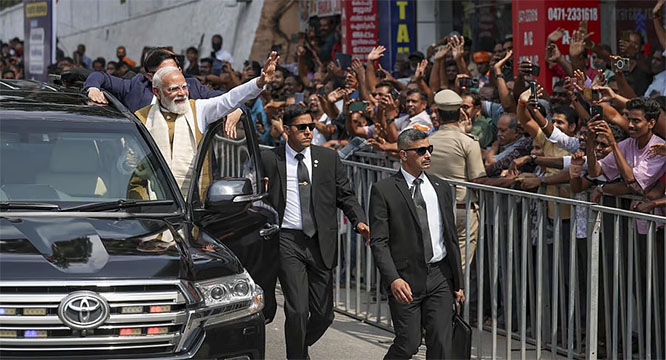
Mumbai, April 17: After a gap of three years, Reserve Bank Governor D. Subbarao on Tuesday slashed short term lending rate by 0.50 per cent to 8 per cent, a move that will reduce the cost of home, auto and corporate loans.
The reduction in the repo rate at which RBI lends to banks, has been prompted by deceleration in growth and softening of inflation.
The cut is aimed at spurring growth to 9 per cent levels, seen before the global financial crisis that began in 2008, Mr. Subbarao said while unveiling the annual credit policy in Mumbai.
“The reduction in the repo rate is based on an assessment of growth having slowed below its post-crisis trend rate, which, in turn, is contributing to the moderation in core inflation,” the Governor said.
RBI has pegged the GDP growth rate for 2012-13 at 7.3 per cent. It is expected to be 6.9 per cent in 2011-12.
After two consecutive cuts since January, the Governor, however, retained the cash reserve ratio at 4.75 per cent.
Mr. Subbarao, however, ruled out further reduction in policy rate in the immediate future citing persistent upside risks to inflation and possible fiscal slippages driven by higher oil subsidies. It expects the inflation to be around 6.5 per cent by March 2013.
“It must be emphasised that the deviation of growth from trend is modest. At the same time, upside risks to inflation persist. These considerations inherently limit the space for further reduction in policy rates,” he said.
The decision is likely to prompt the banks to cut lending rates for home, auto and corporate loans, experts said.
The RBI has raised lending rates 13 times between March 2010 and October 2011 to contain inflation that had been hovering near double-digit.
This had led to clamour by industry to cut rates and spur industrial and economic growth that has slowed down considerably during the past few quarters.
In order to ease tight liquidity situation, Mr. Subbarao announced doubling the borrowing under the Marginal Standing Facility for banks to 2 per cent of their deposits with immediate effect. It also permitted banks to borrow under the MSF even if they have excess government securities holdings.
On the growth front, RBI expects FY’13 to be moderately better than the fiscal gone by. It has pegged GDP growth at 7.3 per cent, which is 0.3 per cent lower than the government projection for 2012-13. Growth in 2011-12 is seen at a 3-year low of 6.9 per cent.
Even though spurring growth has taken the priority at the Mint Road, the RBI continues to be worried about the inflation scenario, calling it as “challenging” due to the sharp spikes in crude prices and food articles in the recent months.
Noting the moderation in manufacturing inflation, the Governor pegged the annual overall inflation target at 6.5 per cent for FY’13 (which is 0.5 per cent lower than its projection for FY’12), saying the price rise will be range-bound through the year.
Inflation was the key driver that guided the Reserve Bank to tighten money supply, and later hold rates during the past 36 months.
The period also saw it inflicting 13 simultaneous hikes, by 3.75 per cent in repo rates over the 19-month period, making it one of the most aggressive central banks in the world.
Apart from hurting investment activity, the rate hikes severely hurt the retail borrowers as higher loan repayments put household budgets for a toss.
The RBI made a conscious effort at placating this class by reiterating that banks should not charge prepayment penalties from home loan borrowers. It also announced to set up a working group to assess the possibility of having long-term fixed interest products which will not be exposed to interest rate changes.







Comments
Add new comment